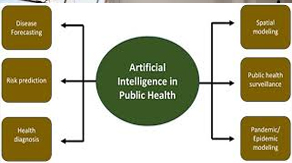In recent years, the rise of plant-based diets has led to a surge in popularity for plant burgers, often marketed as healthier and more sustainable alternatives to traditional beef burgers. As consumers increasingly seek out options that align with their health, environmental, and ethical values, the question arises: are plant burgers really better than beef? This comprehensive article delves into various aspects of both options to help you make an informed decision.
1. Health Considerations
Nutritional Content
When evaluating whether plant burgers are better than beef, the first area to consider is nutritional content.
- Plant-Based Burgers: Most plant burgers are made from a blend of ingredients such as legumes, grains, vegetables, and plant proteins (like soy or pea protein). They are typically lower in saturated fat and cholesterol than beef, making them a heart-healthier option. Many also contain fiber, which is absent in animal products, and a range of vitamins and minerals. However, some processed plant burgers can be high in sodium and may lack essential nutrients like vitamin B12, iron, and omega-3 fatty acids that are prevalent in beef.
- Beef Burgers: Beef is a rich source of high-quality protein, essential amino acids, iron, zinc, and B vitamins. However, red meat, particularly processed varieties, is linked to higher levels of saturated fat and cholesterol. Numerous studies have shown that excessive consumption of red and processed meats is associated with an increased risk of heart disease, certain cancers, and other health issues.
Caloric Intake
Both plant and beef burgers vary significantly in caloric content based on preparation methods, portion sizes, and specific ingredients used. When making your choice, it’s essential to read nutritional labels and consider not just the calories but also the quality of those calories.
Dietary Impact
The health implications of your choice also depend on your overall dietary pattern. Incorporating more plant-based foods is generally associated with a range of health benefits, including lower risks of obesity, type 2 diabetes, and cardiovascular disease. For individuals looking to improve their health or reduce their meat intake, plant burgers may be a favorable option.
2. Environmental Impact
Carbon Footprint
The environmental considerations of choosing plant burgers over beef are increasingly becoming a focal point in discussions about food sustainability.
- Plant-Based Burgers: Research indicates that plant-based diets can significantly lower an individual’s carbon footprint. The production of plant-based foods typically results in fewer greenhouse gas emissions than that of animal products. For example, a study published in Nature found that producing beef generates roughly 10 to 30 times more greenhouse gases per gram of protein than producing plant-based proteins.
- Beef Production: Cattle farming is associated with various environmental challenges, including deforestation, water usage, and land degradation. Raising livestock requires substantial resources, and the methane emissions from cattle contribute significantly to climate change.
Resource Usage
Plant burgers generally require fewer natural resources to produce compared to beef. For instance, the water footprint for plant-based ingredients is considerably lower. The production of one pound of beef can require over 1,800 gallons of water, while producing one pound of lentils uses less than 250 gallons.
Sustainability
Transitioning to a plant-based diet is often recommended as a strategy for promoting sustainability and reducing overall environmental impact. As consumers become more aware of their food choices’ ecological implications, many are opting for plant-based burgers as a way to contribute positively to the planet.
3. Taste and Texture
Flavor Profiles
The taste and texture of a burger can significantly influence your choice.
- Plant-Based Burgers: The flavor profile of plant burgers varies widely by brand and formulation. Some are designed to closely mimic the taste of beef, utilizing ingredients like beet juice or natural flavorings to achieve a similar appearance and taste. Others embrace a distinct flavor that highlights the ingredients used, such as black beans, quinoa, or lentils. The enjoyment of plant burgers often comes down to personal preference, with some people loving the innovative flavors while others may find them less satisfying compared to beef.
- Beef Burgers: Many people have a strong preference for the traditional taste and texture of a beef burger, especially when cooked on a grill. The juiciness and richness of beef, particularly when seasoned and cooked correctly, can be hard to replicate. For many, the sensory experience of biting into a beef burger is unmatched.
Cooking Methods
Both plant and beef burgers can be cooked in various ways—grilled, pan-fried, or baked—which can significantly affect their flavor. Experimenting with different cooking methods, seasonings, and toppings can enhance the overall experience of either option.
4. Ethical Considerations
Animal Welfare
For many consumers, ethical considerations play a crucial role in deciding between plant burgers and beef.
- Plant-Based Burgers: Choosing plant-based options often aligns with a commitment to animal welfare. The production of plant-based foods does not involve the raising or slaughtering of animals, making it a more humane choice for those concerned about animal rights.
- Beef Production: The ethical implications of beef production are significant. Issues such as factory farming practices, animal treatment, and the environmental impact of livestock raising have led many individuals to reconsider their meat consumption.
Food Security
The production of plant-based foods can contribute to global food security. With a growing population and increasing pressure on food systems, plant-based diets can be more efficient in utilizing resources to feed more people. For example, grains and legumes can provide ample protein without the resource intensity of livestock farming.
5. Cost Considerations
Price Comparison
Price is an essential factor for many consumers when deciding between plant and beef burgers.
- Plant-Based Burgers: The cost of plant-based burgers can vary significantly based on the brand and ingredients. Some premium plant-based options can be pricier than traditional beef burgers, though prices have been gradually declining as demand increases and production scales up.
- Beef Burgers: Beef burgers are often available at a range of prices, from budget-friendly options to premium cuts. While they may sometimes be more affordable than plant-based alternatives, fluctuating beef prices can affect overall cost.
Budgeting
When deciding what to include in your diet, consider your budget and how frequently you plan to consume these options. For those on a tight budget, cooking with whole plant ingredients like beans, lentils, and grains can be a cost-effective way to enjoy a plant-based diet without relying on processed alternatives.
6. Personal Values and Lifestyle
Dietary Restrictions
For individuals with dietary restrictions, the choice may be clear.
- Plant-Based Burgers: These are often suitable for vegetarians, vegans, and those with lactose intolerance. Plant burgers provide a way to enjoy a burger experience without animal products.
- Beef Burgers: For those who consume animal products and prefer traditional flavors, beef may be the preferred choice.
Lifestyle and Preferences
Your lifestyle and eating habits will also influence your decision. If you’re focused on health and sustainability, incorporating more plant-based meals might align better with your goals. On the other hand, if you prioritize taste and traditional cooking methods, beef may remain a staple in your diet.
7. Social and Cultural Factors
Community and Tradition
Food choices often carry cultural significance. For many, burgers are tied to social gatherings, barbecues, and traditional family recipes. The choice between plant and beef burgers can reflect personal history and community practices.
- Plant-Based Burgers: The growing popularity of plant-based diets has led to an increase in social gatherings focused on vegetarian and vegan options. Many restaurants now offer creative plant burger options, contributing to a more inclusive dining experience.
- Beef Burgers: In many cultures, beef burgers represent comfort food and are integral to social events. The nostalgia and memories associated with traditional beef burgers can make them hard to replace.
Influence of Social Media
The rise of social media has also influenced food choices. As influencers and celebrities promote plant-based diets, many consumers are experimenting with plant burgers. Online platforms allow for the sharing of recipes, cooking tips, and reviews, encouraging people to explore both options.
8. Environmental Sustainability and Climate Change
Urgency of Transition
As climate change becomes an increasingly pressing issue, the urgency to transition toward more sustainable food systems grows. The food industry is a significant contributor to greenhouse gas emissions, and shifting dietary patterns can play a crucial role in mitigating environmental impact.
- Adopting Plant-Based Diets: Many environmental organizations advocate for reducing meat consumption to decrease individual carbon footprints. By choosing plant burgers, consumers can make a meaningful contribution to climate action.
- Supporting Sustainable Practices: While both beef and plant-based production have environmental impacts, choosing responsibly sourced beef (e.g., grass-fed, organic) can also align with sustainability goals. However, it’s generally accepted that plant-based diets offer a more immediate solution to reducing environmental strain.
9. Future Trends in Food Production
Innovations in Plant-Based Foods
The food industry is witnessing rapid advancements in plant-based technology, leading to improved taste and texture in plant burgers. Companies are investing in research and development to create products that closely mimic the experience of eating beef.
The Role of Lab-Grown Meat
Emerging technologies, such as lab-grown meat, may also change the landscape of protein consumption. These products aim to provide the taste and texture of beef without the environmental and ethical concerns associated with traditional livestock farming. As these technologies develop, they may offer consumers even more choices in the future.
Conclusion
Deciding whether plant burgers are better than beef ultimately depends on a variety of factors, including health, environmental impact, taste, ethics, cost, and personal values. Plant-based burgers present numerous advantages in terms of sustainability and health, while beef burgers may appeal for their flavor and cultural significance.
The best approach is to consider your individual circumstances, preferences, and goals. Whether you choose to embrace a plant-based diet, maintain a traditional beef burger habit, or find a balance between the two, making informed choices that align with your values will lead to a more satisfying and fulfilling dining experience. Ultimately, both options have their merits, and exploring the wide array of flavors and possibilities in the burger realm can be an enjoyable journey in itself.


